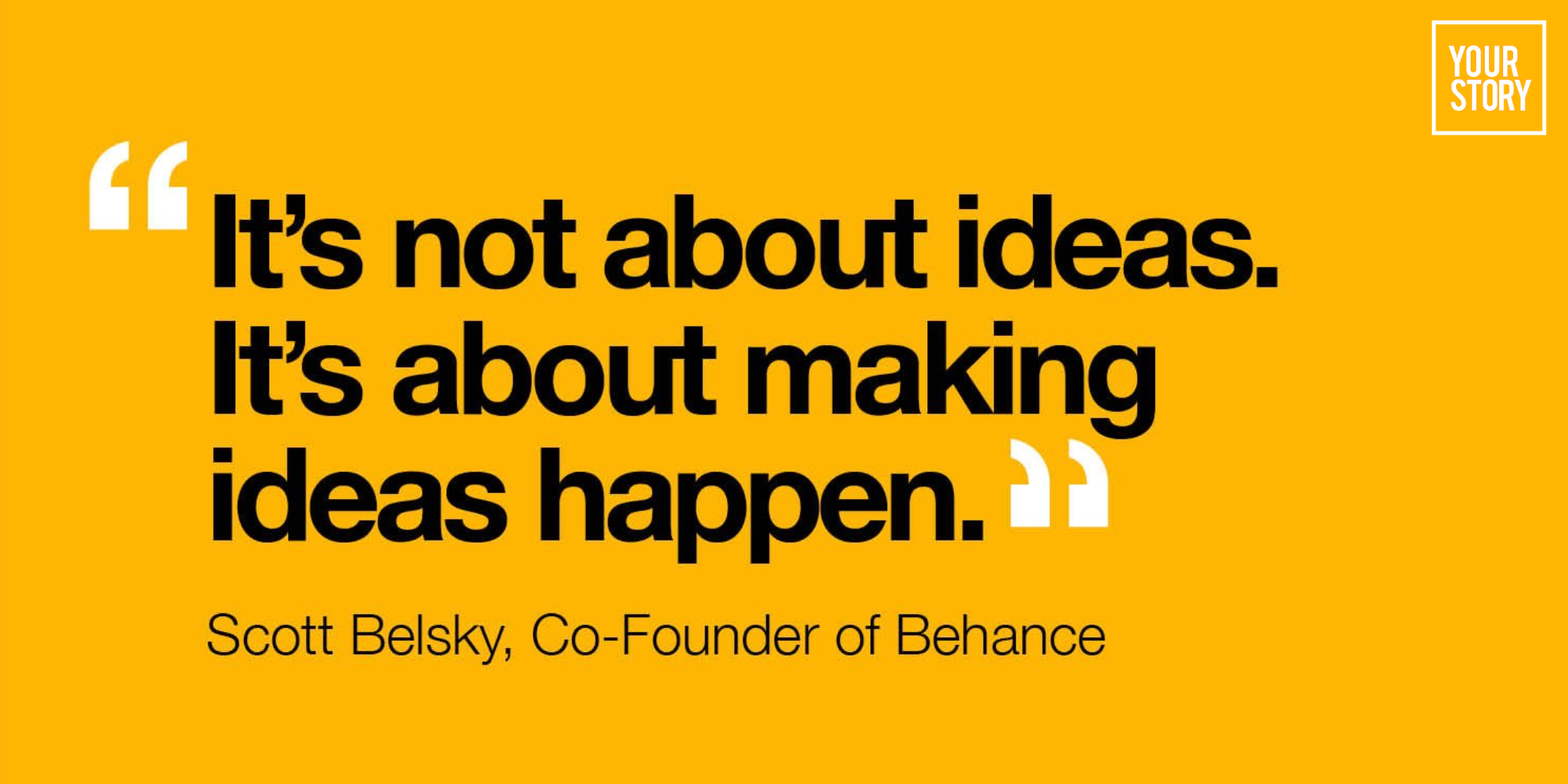In a world where machines and AI rule, re-skilling is the only way out
Gartner says more than 3 million workers across the world will have a ‘robo boss’ by 2018. High time businesses reorient skill development programs to help mid-level managers stay relevant.
In July, the Vodafone-Idea merger was approved by the Competition Commission of India (CCI). The mega deal will make the shareholders of both companies become part of the largest telecom company in India, and reward them in the future. It will also create a situation that can quickly escalate into a nightmare.
As many as 6,000 senior-level leaders will have overlapping roles in the new entity. Industry sources say at least 50 percent of these will have to be let go and will be “not employable”. These individuals, who have put in at least 20 years of work in various roles within the organisation, have not been trained to keep pace with the digital era. But turning unemployable at the age of 45 is scary.

If the scene in Mumbai is bleak, in Chennai, the offices of ZohoCorp seem to have a Zen vibe.
Co-founder Sridhar Vembu is analysing technologies that can impact his organisation and his employees. He leaves no stone unturned when it comes to upskilling employees and is betting on technical languages that work for Zoho’s applications. Sridhar spends a lot of time with his engineers and almost 400-odd engineers have moved from the coding server to building applications on Android. At Zoho, senior engineers are constantly relearning static languages (Scala and Java) and are even playing with dynamic languages (JavaScript, ActionScript, Ruby on Rails). Sridhar says:
We can build a global organisation the Indian way. Unfortunately, all organisations use the western concept of hiring and firing, and focus on boosting shareholder returns. It is the problem of leaders who don’t understand the impact they have on employees fired; after all, they just followed what they were told.
He adds that it is the responsibility of leaders to ensure employees are up to date with new technologies.
“Even if people are talking about AI, you need human capital to train these machines in understanding data. I believe in contextual learning and people in Zoho are learning from different teams at any given point of time,” says Sridhar.
He continues to believe that human capital is the greatest advantage in this era than ever before.
“Indians perform all rituals; unfortunately god has left the temple. Today, we have moved from being spiritual to being ritual,” Sridhar says, implying that today everyone follows a leader or pursues a task, but neither the leader nor employees think about a holistic approach to learning and building systems.
Narayana Murthy, Chairman Emeritus of Infosys, at the founders' farewell dinner in 2015 urged his organisation to follow “compassionate capitalism”. He had said, “It was our belief that it is only through excellence in people that we could achieve such growth.”
With machine learning and AI skills requiring a deeper understanding of the industry, a manager has to retrain himself and ensure that the death of old legacy of businesses like maintenance of code and quality testing jobs do not affect new hires or people five years into the job.
Manoj Thelakkat, Founder of Reflex Training Partners, says, “Training modules have to change from time-based and certification programmes to contextual learning.” He says his organisation is teaching senior managers through theatre and music to understand collaborating in the world of AI, preparing organisations to reskill staff rather than sack them by looking at an Excel sheet.
Corporates are reskilling and realising that AI does not mean losing jobs, but “a realignment of jobs”.
The long road to re-skilling for the AI world
In a recent survey by PWC titled Bot.Me: A revolutionary partnership more than 50 percent of respondents believed AI could help better healthcare, financial management, security and education. Less than 40 percent believed that it could create income and gender equality. In the next five years, jobs such as tutors, travel agents, tax preparers, office and home assistants, health coaches, chauffeurs and general physicians will get replaced.
The survey was limited to developing markets where growth has stagnated and the population is aging. This falls right into the table for India as these AI programs will be built by engineers.
Vijay Ratnaparkhe, Managing Director of Robert Bosch Engineering and Business Solutions Limited (RBEI), believes that one “must not forget that today India is building software for the world and we are the brains powering future solutions”.
Robert Bosch and its 15,000-plus engineers are building software for cars, which are learning about living objects by using mono-chrome cameras, ultrasound, radar and LIDAR technology. These are the kind of roles that engineers must prepare for in the coming days.
As new technologies emerge, Infosys is investing in upskilling and has designed programs to help mid-management levels keep pace with change.
Richard Lobo, Executive VP and HR Head at Infosys, says: “Automation and related technology are the way forward and must be embraced by employees, irrespective of their role or job level.”
He adds that new avenues have evolved rapidly, which need the company to reskill people on newer technologies and hire from outside to meet gaps in the skill mix. These include areas like user experience, cloud-native development, AI and industrial IoT, Big Data, Analytics and Automation.
“In this environment, it is important that employees showcase high learnability and the ability to re-skill themselves rapidly,” Richard says.
Infosys has created game-based learning methodologies where the program focuses on taking disagreements and turning them into positive solutions. This program enables managers to consciously embrace differences of opinion and create an environment that cuts through the competitive nature of conflicts, promoting collaboration among teams and partners.
The company has invested in agile and feels that it is the only process they have devoted purely to the middle layer. Ever since Vishal Sikka took over as CEO he is preparing employees on Design Thinking, where Infosys understands the entire technology requirement from the business perspective. The company has trained 1,42,218 employees so far and wants everyone in the company to go through that change.
Infosys also works with Stanford to train senior leaders. The Stanford Global Leadership Program had 36 graduates in the first quarter of this financial year. Seventy senior people have completed the program so far and another 40-plus are in the current batch.
“This is one-of-a-kind program to build our next generation leaders,” Richard says.
Last quarter, Infosys finished training 3,000 people on AI technology, 2,100 of them on the Nia platform. It has currently created a bank of 3,500 videos available and has also partnered with Udacity and Coursera for different skills.
It is all about new skills
There is a reason for this rush to train employees in new skills. Clients are now asking IT services to be more in line with client success in winning business.
Daimler AG, for example, is working with Bosch to launch a fleet of autonomous cars in a five-year time frame. For this form of business, a new framework of data analytics services, network and infrastructure needs to be created. It is here that IT Services want to take a bet. They will use the current set of resources to build these new IT requirements. The days of doling out CVs could reduce and the engineering community has begun living in fear. But it is an era of constant learning.
Rajesh Kumar R, Delivery Head, Retail, CPG and Manufacturing at Mindtree, the $900-million IT services company, says: “With the advent of any new technology there will be some impact to certain jobs. However, the concern or 'fear' is due to this short-term impact. Focusing on reskilling and technology education can help employees stay relevant.”
He adds that irrespective of automation, collaboration is imperative to be successful in the current environment. For example, a startup ecosystem produces amazing innovation that corporates and governments can adopt. Similarly businesses of various sizes will address different segments of the industry and all these will need to work together to address demands. The future of the industry is moving towards a highly collaborative environment.
“Automation is impacting mid-level managers because automation is now touching the so-called 'knowledge worker'-related areas, once thought ‘not automatable’,” Rajesh says. He adds that far more cognitive tasks will be automated in the coming years and automation will happen more rapidly as we progress.
At Mindtree, learning is driven by Yorbit, the company’s online enterprise learning platform that has yielded great results in just a year of its launch. Multiple knowledge sources are brought into this platform to enable directed self-learning complemented with project-driven assisted learning to put knowledge into practice.
Automation is likely to impact “cognitive routine” tasks and will shift the focus of human intervention to “cognitive non-routine” areas. For example, with ATMs, banks are less worried about the mechanics of collecting and distributing cash, instead the workforce is focused on investment advices and customer relations. If we take the automobile industry, the human focus is more on innovation, design and less on core manufacturing where quality manufacturing is taken for granted with heavy robots driven automation.
Digital is prompting organisations across industries to reinvent and reimagine their employee enablement and engagement strategies for better business success. The correlation between employee engagement and business performance is becoming increasingly relevant.
It is all about managing change
According to Gartner Research, by 2018 50 percent of team collaboration and communication will occur through mobile group collaboration apps. Organisations will have unified observational, social and people analytics to discover, design and share better work practices. While the workplace is transforming at a rapid pace, it requires your workforce to reimagine their future by adopting newer technologies. The role of leadership now also includes making the change easier for employees.
Nishikant Nigam, EVP & Chief Delivery Officer, at CSS Corp, an IT Services company, says: “In this context, the mid-level management, the future leader/CXOs, in organisations also need to evolve and reinvent as traditional roles and structures come under increasing strain.”
India’s IT workforce comprises roughly 1.4 million mid-level managers, and they are finding themselves at the centre of reskilling and restructuring conversations across organisations.
NASSCOM believes the IT industry’s current reskilling focus is on emerging technologies like Big Data, Analytics, Cloud, IoT, Mobility, and Design Thinking, while also investing in emerging skills like Machine Learning, Natural Language Processing, Artificial Intelligence, DevOps, Robotic Process Automation, and Cybersecurity.
However, as Mohandas Pai, Chairman of Manipal Global Education and former member of the board of directors of Infosys, says: “If growth beats job losses, employment will continue to grow. But we need to be prepared for automation.”
There needs to be a constant evolution of skills by embracing concepts like job rotation and fluid teams.
Nishikant believes that adopting “a mix of traditional and new-age learning methodologies, digital skilling platforms, along with a thrust on building full-stack professionals and institutionalising continuous learning, will play a pivotal role in creating the right differentiation and staying ahead of the pack.”
Technology is changing fast and it is imperative for mid-level managers to seek out continuous learning opportunities.
Anand Venkateswaran, Vice President, Finance and Member, Board of Directors, Target India, says: “We expose our managers to the latest technology trends, and provide opportunities where they can leverage these learnings to support personal development and drive business outcomes.”
He adds that senior managers are given the opportunity to mentor and interact with startups to be in touch with the latest and most relevant industry developments.
Some of the technologies that managers have to reskill for are Machine Learning, Natural Language Processing (NLP), Python, Java, open source technologies and Computer Generated Imagery (CGI).
However, all this boils down to three things: leadership, an employee’s ability to learn and the corporate’s ability to train people quickly.
“Employees should keep in mind that if they are working for a CEO or a corporate that does not believe in reskilling them, they must quit before they are sacked,” Sridhar says.

The need for humans in the world of AI
According to Accenture, companies will have to adapt their training, performance and talent acquisition strategies to account for a newfound emphasis on work that hinges on human judgment and skills, including experimentation and collaboration. Their survey on the impact of AI on management revealed the following:
AI will put an end to administrative management work. Managers spend most of their time on tasks at which they know AI will excel in the future. Specifically, surveyed managers expect that AI’s greatest impact will be on administrative coordination and control tasks, such as scheduling, resource allocation and reporting.
There is both readiness and resistance in the ranks. Unlike their counterparts in the C-suite, lower-level managers are much more skeptical about AI’s promise and express greater concern over issues related to privacy. Younger managers are more receptive than older ones. And managers in emerging economies seem ready to leapfrog the competition by embracing AI.
The next-generation manager will thrive on judgment work. AI-driven upheaval will place a higher premium on what we call “judgment work”— the application of human experience and expertise to critical business decisions and practices when information available is insufficient to suggest a successful course of action. This kind of work will require new skills and mindsets.
A people-first strategy is essential. Replacing people with machines is not a goal in itself. While artificial intelligence enables cost-cutting automation of routine work, it also empowers value-adding augmentation of human capabilities. The findings suggest that augmentation —putting people first and using AI to amplify what they can achieve — holds the biggest potential for value creation in management settings.
Executives must start experimenting with AI. It’s high time executives and organisations start experimenting with AI and learning from these experiences. If the labour market’s shortage of analytical talent is any guide, executives can ill afford to “wait and see” if they — and their managers — are equipped to work with AI and capable of acquiring the essential skills and work approaches.
With smart automation, quick robots and intelligent software bots becoming an integral part of the workforce, it’s critical that organisations and employees collaborate to forge the path ahead. It’s the only way to deal with the charge of the light brigade.










![[YS Learn] LetsVenture founder shares what investors look for when investing in a startup](https://images.yourstory.com/cs/2/a9efa9c02dd911e9adc52d913c55075e/Imageio1d-1596715578322.jpg)
